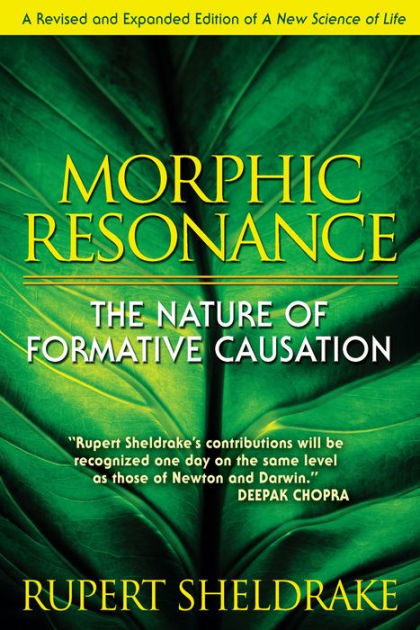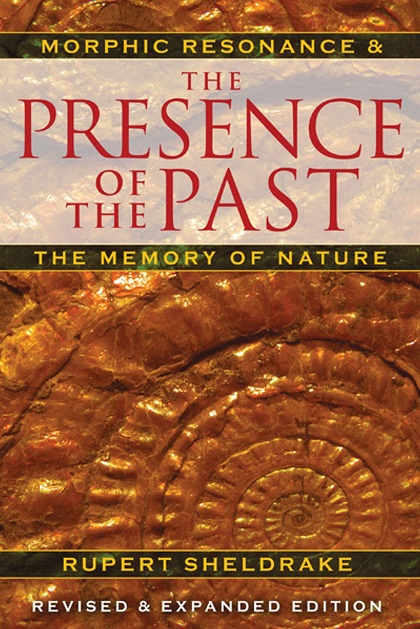|
home | what's new | other sites | contact | about |
|||
|
Word Gems exploring self-realization, sacred personhood, and full humanity
Dr. Rupert Sheldrake's
return to "Evolution Controversy" contents page
From Rupert Sheldrake’s book, “Science Set Free,” chapter one, “Is Nature Mechanical?” Editor’s note: Rupert addresses how materialists, in their theories of how nature works, “expel” any reference to God, intelligent design, consciousness, animating spirit, or any form of non-material vitalism. However, there seem to be aspects of biological evolution which might be explained in no other way; as such, they reintroduce forms of vitalistic element under “molecular guises,” palatable to the materialistic view.
the all-knowing, all-seeing, almighty gene "One form of molecular vitalism is to treat the genes as purposeful entities with goals and powers that go far beyond those of a mere chemical like DNA. The genes become molecular entelechies. Editor’s note: “Entelechy” derives from a Greek word “teleos” which refers to a goal or end-purpose. From my New Testament studies of decades ago, I recall that the words of Jesus concerning “become perfect” do not mean, as suggested by older translations, “become flawless” but, as the underlying Greek features “teleos,” the sense issues as, “become mature, grow up, be what you were meant to be.” An “entelechy” has its goal or end-product built within it. A “molecular entelechy” is a molecule, a gene, that knows where it’s going, can run its own show, will plan for its own development, orchestrates its own evolution. In other words, the gene, now imbued with existential perspicacity, has replaced a superintending transcendental authority. "In his book, The Selfish Gene, Richard Dawkins [one of the leading materialistic biologists in the world] endowed them with life and intelligence. Editor’s note: Recall the charge that modern biology is not a real science, in the sense that chemistry and physics are; in that, the underlying foundational elements are squishy, lack substance, and resemble “infallible doctrines” of a “rival religion.” Dawkins used the title “Selfish Gene” to denote genes’ tendency toward survival; that, it will do for itself, direct itself, in a manner that will promote the perpetuation of species on Earth. Is this science or a big-tent call to a supertitious faith and revival? "Living molecules, rather than God, are the designers of the machinery of life: [Dawkins:] We are survival machines, but “we” does not mean just people. It embraces all animals, plants, bacteria, and viruses… We are all survival machines for the same kind of replicator – molecules called DNA – but there are many different ways… A monkey is a machine which preserves genes up a tree; a fish is a machine which preserves genes in the water. the almighty gene moves in mysterious ways "In Dawkins’s words, 'DNA moves in mysterious ways.' The DNA molecules are not only intelligent, they are also selfish, ruthless and competitive, like 'successful Chicago gangsters.' The selfish genes 'create form,' 'mould matter,' and engage in 'evolutionary arms races'; they even 'aspire to immortality.' These genes are no longer mere molecules: [Dawkins:] Now they swarm in huge colonies, safe inside gigantic lumbering robots [i.e., the physical bodies of the various species], sealed off from the outside world, communicating with it by tortuous indirect routes, manipulating it by remote control. They are in you and me; they created us, body and mind; and their preservation is the ultimate rationale for our existence… Now they go by the name of genes, and we are their survival machines... [Dr. Sheldrake:] "The mechanistic theory of life has degenerated into misleading metaphors and rhetoric..."
***************************************************
From Rupert Sheldrake’s website:
Richard Dawkins comes to callA crusading atheist and author of The God Delusion, Richard Dawkins is Professor of the Public Understanding of Science at Oxford University. He is a Fellow of CSI (The Committee for Skeptical Inquiry, formerly CSICOP) and a strong supporter of James Randi. His earlier books were on evolutionary biology, the best known being The Selfish Gene. In 2007, he visited Rupert to interview him for his TV series Enemies of Reason:
Editor's note: This is an utterly bogus claim. "Extraordinary" to whom? Materialists would like to invent new rules of evidence when it comes to areas that challenge their world paradigm. Do you see how the game is played? When bone fide evidence is produced, all they have to say is, "It's not good enough," because “extraordinary claims require extraordinary evidence." And then they'll summarily dismiss it, because the evidence will never be good enough for them. See my article on the "Rules Of Clear Thinking." “This depends on what you regard as extraordinary”, I replied. “Most people say they have experienced telepathy, especially in connection with telephone calls. In that sense, telepathy is ordinary. The claim that most people are deluded about their own experience is extraordinary. Where is the extraordinary evidence for that?” http://www.sheldrake.org/D&C/controversies/Dawkins.html
Bio: Rupert Sheldrake, Ph.D. Rupert Sheldrake is a biologist and author of more than 80 scientific papers and ten books. A former Research Fellow of the Royal Society, he studied natural sciences at Cambridge University, where he was a Scholar of Clare College, took a double first class honours degree and was awarded the University Botany Prize. He then studied philosophy and history of science at Harvard University, where he was a Frank Knox Fellow, before returning to Cambridge, where he took a Ph.D. in biochemistry. He was a Fellow of Clare College, Cambridge, where he was Director of Studies in biochemistry and cell biology. As the Rosenheim Research Fellow of the Royal Society, he carried out research on the development of plants and the ageing of cells in the Department of Biochemistry at Cambridge University. While at Cambridge, together with Philip Rubery, he discovered the mechanism of polar auxin transport, the process by which the plant hormone auxin is carried from the shoots towards the roots.
|
|||
|
|

